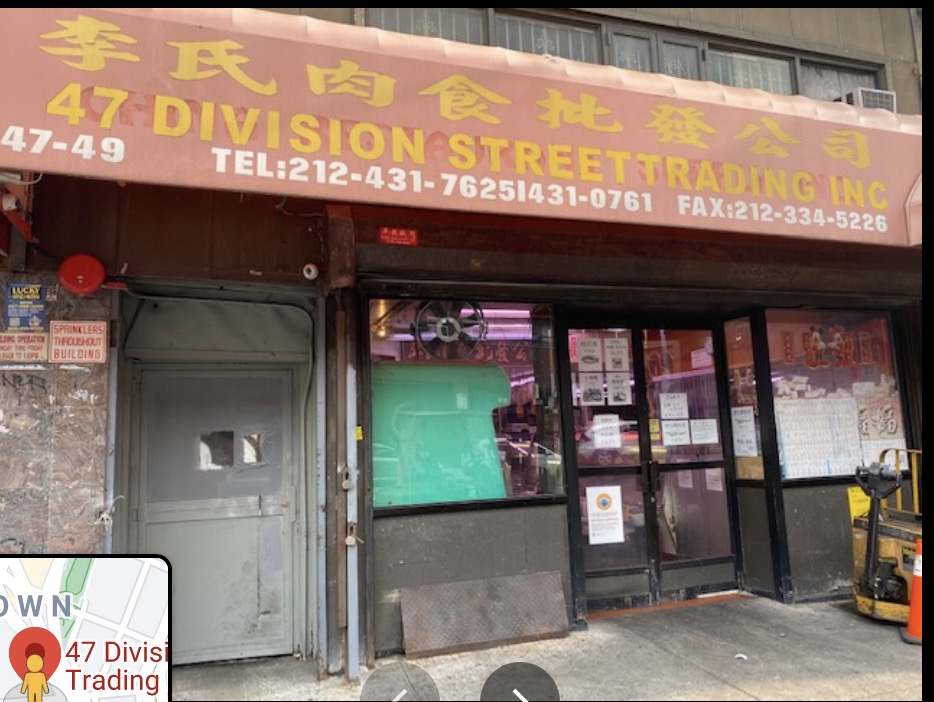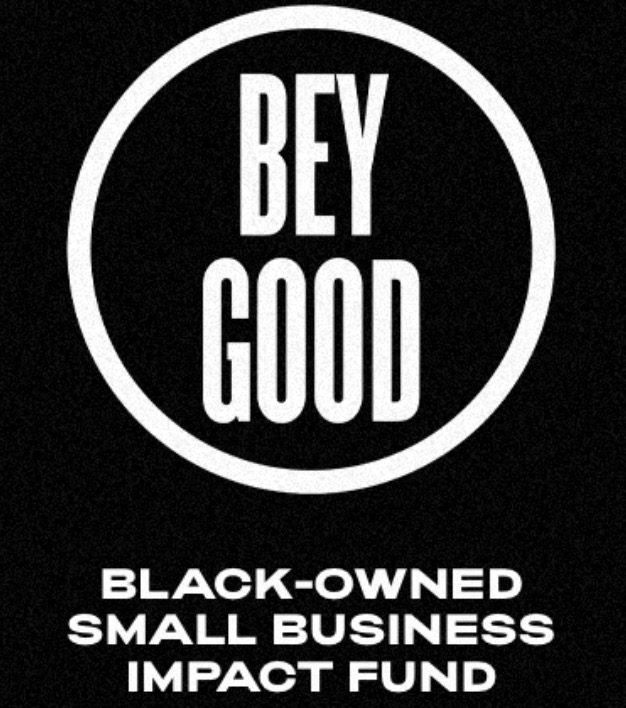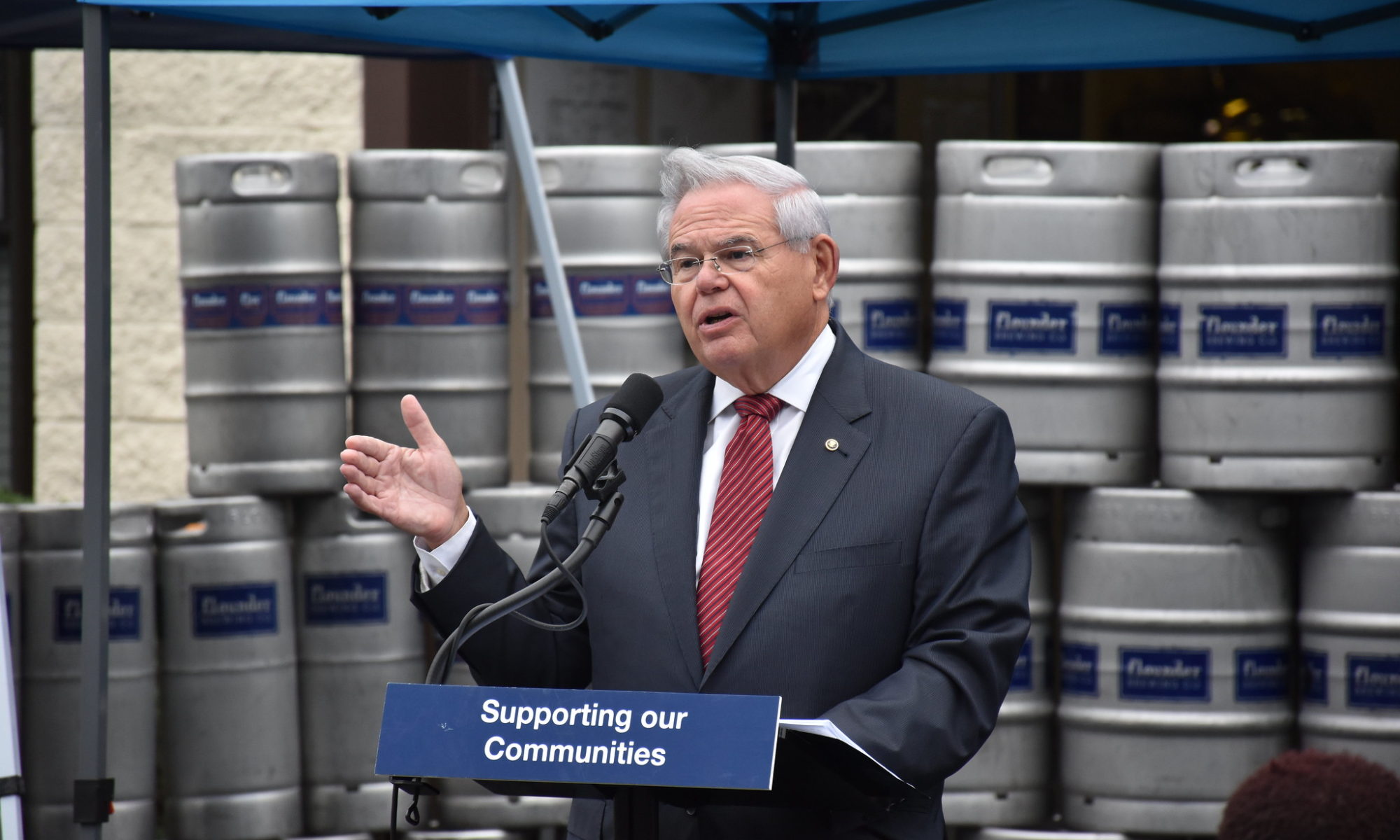Overlook the potty language and focus on Chinatown Meat Boy's awesome humanity. A butcher shop owner helping to feed the commnity's vulnerable.
Beyonce’s BeyGood Fdn is giving $10k grants to Black Businesses thru Dec 2020
Beyonce's BeyGood Foundation and The NAACP are giving $10k grants to Black Businesses through December 2020.
Additional $100 million on the way for NJ COVID Relief
TRENTON – On 14 October 2020, Gov. Phil Murphy with US Senator Bob Menendez and Congressman Tom Malinowski announced $100 million in additional Coronavirus Aid, Relief, and Economic Security (CARES) Act funding to support New Jersey COVID-19 affected residents and businesses.
$70 million will be distributed to restaurants, microbusinesses, and other small businesses through Phase 3 of the New Jersey Economic Development Authority (NJEDA) Small Business Emergency Assistance Grant Program. $10 million of the funds will help small businesses purchase Personal Protective Equipment (PPE) through the NJEDA Small and Micro Business PPE Access Program. $15 million will support renters through the Department of Community Affairs’ (DCA) COVID-19 Emergency Rental Assistance Program; and $5 million will support food banks and other hunger relief efforts.
“Small businesses and the people they employ are the backbone of New Jersey’s economy, yet they have borne a disproportionate share of the burden of the COVID-19 pandemic,” said Governor Murphy. “It is incumbent on us to support them in any way possible. This additional funding helps us accomplish that goal.”
“Many restaurants have had a hard time staying afloat even with outdoor dining and are now facing an uncertain winter. Our economic recovery depends on the ability of our small businesses to survive until an effective treatment and cure for the coronavirus can be found,” said Senator Steve Sweeney. “We need Washington to step up now with another stimulus package to keep us from sliding further into recession.”
“I want to commend our state leaders for working together to get the federal coronavirus relief dollars we passed last spring into the hands of those who need it most,” said US Senator Bob Menendez. “This $100 million fund comes from the money we in Congress included in the CARES Act to help combat the economic fallout of this pandemic.”
Phase 3 of the Small Business Emergency Assistance Grant Program expands eligibility to any business with 50 or fewer full-time equivalent employees (FTEs) and increases the amount of funding businesses can receive. To ensure funds flow to businesses that need them most, Phase 3 grants are earmarked primarily forrestaurants and micro-businesses. $35 million will be dedicated to support businesses classified as “Food Services and Drinking Places” and $15 million is designated for “micro-businesses” with five or less employees. The remaining $20 million will be available to support any eligible business.
One third of each funding pool is designated for entities located in New Jersey Opportunity Zones.
$10 million will support the NJEDA’s new Small and Micro Business PPE Access Program, an public-private partnership for businesses with 100 employees or fewer to receive grants in the form of discounts on PPE purchased through NJEDA “Designated Vendors”.
EIDL government loans for COVID-affected businesses with only 3.75% interest available now
EIDL government loans for COVID-affected businesses with only 3.75% interest available now #p2
Bergen County Cares small business grant program open for second time thru Friday, August 21
Bergen County Cares small business grant program open for second time thru Friday, August 21
NJEDA announces launch dates to apply for grants for businesses impacted by COVID-19
NJEDA announces launch dates to apply for grants for businesses impacted by COVID-19
Has Sweeney convinced NJ legislators to turn their backs on giving a living wage to NJ workers any time soon?
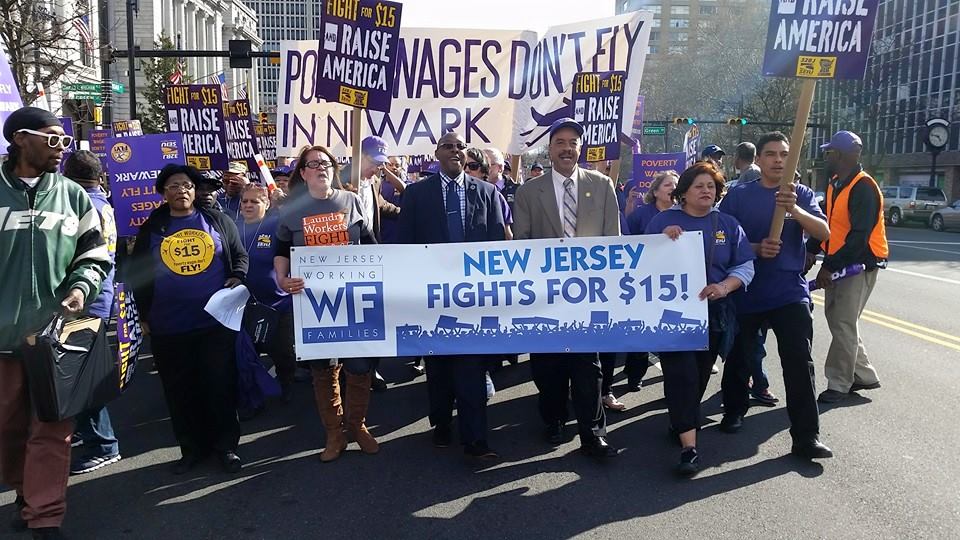
Why will New Jersey have a ballot referendum next year (aka constitutional amendment) that will allow state voters to decide whether to approve SCR1500 and increase the state’s minimum wage – but only by 62¢ in 2018 to $9 per hour and $1.00 a year after that to finally reach $15 an hour eight years from now, in 2024?
I got a slightly confusing reply from State Senator Bob Gordon to my email regarding this issue and have been checking into what his reply could mean. Here are the facts I’ve learned:
New Jersey Democrats were able to pass Bill A-15 on 23 June 2016 to raise the state’s minimum wage to $10.10 an hour in January 2017 and continue raising it in yearly $1.25 increments until it hit $15 an hour in 2021. But Christie vetoed that bill.
State legislators could then have put this same proposal on the ballot as a referendum, letting voters decide how quickly low wage workers could be lifted out of extreme poverty. They went the ballot referendum route, but opted for a much less robust hourly pay raise proposal: and that’s how SCR1500 came into being.
Perhaps the watered down bill is the brainchild of State Senate President Stephen Sweeney (D-Gloucester), whose (now derailed?) plans for a gubernatorial bid next year undoubtedly included courting the vote of the small business community. This community has essentially been convinced to vote against their own interests by Big Money supporters of low worker wages who have promoted a fear campaign to discourage their support for the $15/hour minimum wage.
Although small businesses are one group that stands to majorly benefit from the increased buying power that residents will be able to spend if they earn more, Big Money folk are making them believe that an alternate – and false – reality exists. That’s because the profits of Big Money-backed businesses like Walmart and the Fast Food industry will be seriously curtailed if they need to pay employees fair wages instead of setting them up to receive welfare and foodstamps to supplement starvation pay.
When worker wages are low enough to force families onto social welfare programs, taxpayers at all levels of the spectrum end up subsidizing workers’ food, shelter and medical care. Forbes reports on Walmart employees vast use of the welfare system and Bloomberg points out:
According to one study, American fast food workers receive more than $7 billion dollars in public assistance. As it turns out, McDonald’s has a “McResource” line that helps employees and their families enroll in various state and local assistance programs. It exploded into the public when a recording of the McResource line advocated that full-time employees sign up for food stamps and welfare.
Wal-Mart, the nation’s largest private sector employer, is also the biggest consumer of taxpayer supported aid. According to Florida Congressman Alan Grayson, in many states, Wal-Mart employees are the largest group of Medicaid recipients.
Obama’s SBA rolls out entrepreneur training and microloans for formerly incarcerated individuals
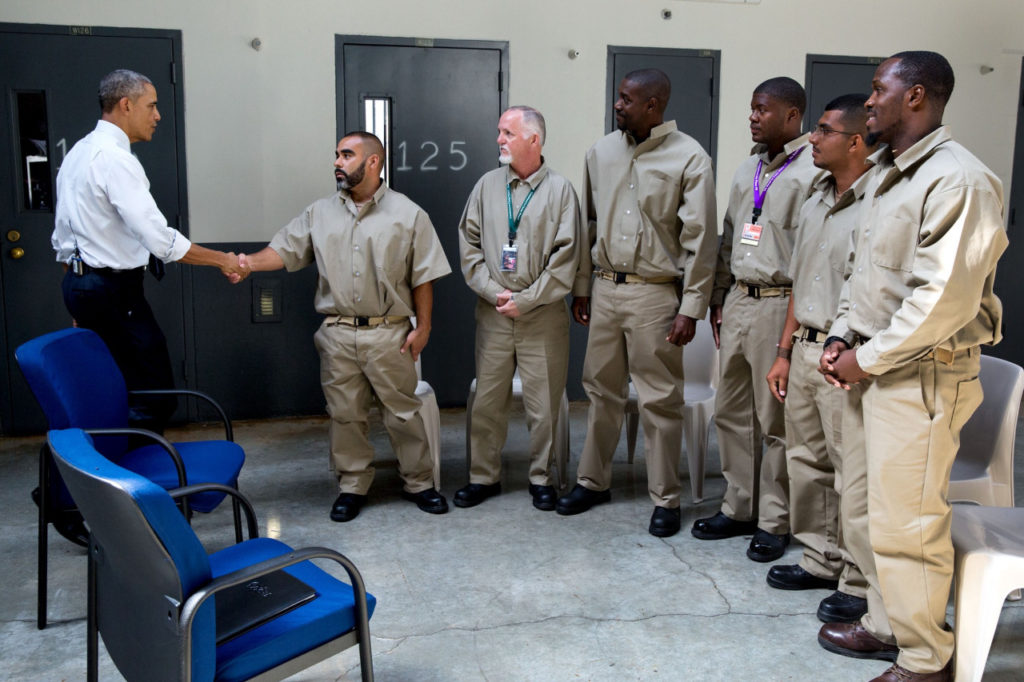
This week, the leaders of the SBA, W.K. Kellogg Foundation and microlender Justine PETERSEN announced the formation of the Aspire Entrepreneurship Initiative, a groundbreaking new $2.1 million partnership to expand access to entrepreneurial education and microloans for formerly incarcerated individuals, with a specific focus on those who are parents. Initial rollout for the initiative is planned for Detroit, MI, Chicago, IL, Louisville, KY and St. Louis, MO.
“Entrepreneurship and small business ownership are proven paths toward wealth creation and financial independence especially for people who might otherwise feel trapped by their circumstances” said SBA Administrator Maria Contreras-Sweet. “America remains a land of opportunity, a place where we believe in second changes for those who have paid their debt to society. Entrepreneurship can be a ladder of opportunity for citizens who have paid that debt but are still struggling to find employment after incarceration. With the training and startup tools provided through this partnership, these American citizens can finally start to rebuild their lives and restore their relationships with their families and communities.”
“At the Kellogg Foundation we know that children thrive when their families are economically secure,” said La June Montgomery Tabron, president and CEO of the W.K. Kellogg Foundation. “It is vital that parent returning citizens have the opportunity to create economic prosperity for their families. One path to that success is creating more opportunities for entrepreneurship by opening access to the capital and training needed for parents to become small business owners in their communities. By giving parents a second chance, we are also giving their children an opportunity to succeed.”
“At the heart of the American dream is opportunity,” stated Robert Boyle, Founder and CEO of Justine PETERSEN, “And the dynamic partnership of the SBA, W. K. Kellogg Foundation and Justine PETERSEN provides the necessary programmatic infrastructure for such opportunity to be afforded and ultimately realized. We at Justine PETERSEN are inspired and excited about bringing entrepreneurial opportunity to returning citizens and their families.”
SBA will oversee strategic planning for the pilot initiative, work with its microlending partners to make capital available for program participants, and leverage its policy research expertise to craft a comprehensive evaluation design for assessing the pilot’s effectiveness. Justine PETERSEN will deliver the intensive, cohort-based entrepreneurial education program and the Kellogg Foundation will fund the pilot initiative and provide matching revolving loan funds and evaluation support. The Kellogg Foundation will also partner with the SBA to produce a white paper summarizing the insights produced by the pilot initiative.
Background
An estimated 60 percent of formerly incarcerated individuals remain unemployed one year after their release, raising the risk of recidivism and resulting in lost lifetime earnings. This cycle has major implications for American families as nearly half of all U.S. children have at least one parent with a criminal record. In 2015, SBA expanded its Microloan Program to small business owners currently on probation or parole. This partnership expands on that policy change to give parents the opportunity to generate income and create economic prosperity for their families.
Three short poems I wrote tonight in eight minutes
Here are my submissions. What do you think?
On a cool summer’s eve
I think about politics
I think about Wednesday
I think about going somewhere this weekend
The end of the workweek
Beginning of fun!!!
Oh, I like fun.
But, wait. My job is writing poems ….
So, really, I am having fun all week.
I guess I will need to work harder on the weekend:
To have MORE fun.
Sounds like a job.
Sounds like work.
I love work.
School year’s almost over
So watch out for roaming children!
Bikes, baseballers and basketball players
Kids walking to the pool
And heading out for ice cream.
Share the road and be safe everybody!
Buzz buzz buzz
Was was was
A bee
Indian man invents inexpensive menstrual pad machine & changed rural women’s lives
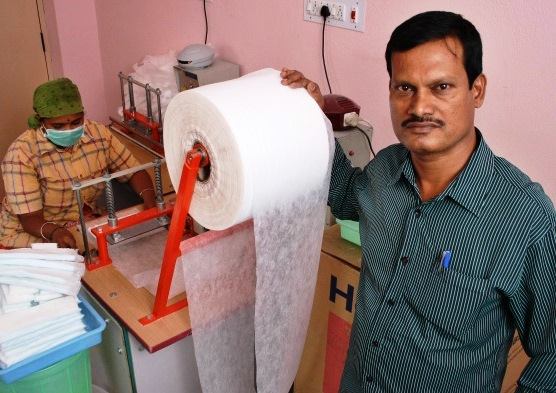
A Mighty Girl reports on Facebook:
After spending years developing a simple machine to make inexpensive sanitary pads, Arunachalam Muruganantham has become the unlikely leader of a menstrual health revolution in rural India. Over eighteen years, Muruganantham’s machine has spread to more than 400 production sites that serve 1,300 villages in the poorest and least developed sections of India. Moreover, since most of his clients are NGOs and women’s self-help groups who produce and sell the pads directly in a “by the women, for the women, and to the women” model, the average machine also provides employment for ten women. His success, both at providing women with more hygienic options and creating local economic opportunities for women, is generating interest in his machine in many developing countries.
For his contributions to menstrual health, Muruganantham was recognized by Time Magazine as one of the world’s 100 Most Influential People in 2014. However, his interest in the topic first began in 1998 when, as a young, newly married man, he saw his wife, Shanthi, hiding the rags she used as menstrual cloths. Like most men in his village, he had no idea about the reality of menstruation and was horrified that cloths that “I would not even use… to clean my scooter” were his wife’s solution to menstrual sanitation. When he asked why she didn’t buy sanitary pads, she told him that the expense would prevent her from buying staples like milk for the family.
Muruganantham, who left school at age 14 to start working, decided to try making his own sanitary pads for less but the testing of his first prototype ran into a snag almost immediately: Muruganantham had no idea that periods were monthly. “I can’t wait a month for each feedback, it’ll take two decades!” he said, and sought volunteers among the women in his community. He discovered that less than 10% of the women in his area used sanitary pads, instead using rags, sawdust, leaves, or ash. Even if they did use cloths, they were too embarrassed to dry them in the sun, meaning that they never got disinfected — contributing to the approximately 70% of all reproductive diseases in India that are caused by poor menstrual hygiene.
Finding volunteers was nearly impossible: women were embarrassed, or afraid of myths about sanitary pads that say that women who use them will go blind or never marry. Muruganantham came up with an ingenious solution: “I became the man who wore a sanitary pad,” he says. He made an artificial uterus, filled it with goat’s blood, and wore it throughout the day. But his determination had severe consequences: his village concluded he was a pervert with a sexual disease, his mother left his household in shame and his wife left him. As he remarks in the documentary “Menstrual Man” about his experience, “So you see God’s sense of humour. I’d started the research for my wife and after 18 months she left me!”
After years of research, Muruganantham perfected his machine and now works with NGOs and women’s self-help groups to distribute it. Women can use it to make sanitary napkins for themselves, but he encourages them to make pads to sell as well to provide employment for women in poor communities. And, since 23% of girls drop out of school once they start menstruating, he also works with schools, teaching girls to make their own pads: “Why wait till they are women? Why not empower girls?”
As communities accepted his machine, opinions of his “crazy” behavior changed. Five and a half years after she left, Shanthi contacted him, and they are now living together again. She says it was hard living with the ostracization that came from his project, but now, she helps spread the word about sanitary napkins to other women. “Initially I used to be very shy when talking to people about it, but after all this time, people have started to open up. Now they come and talk to me, they ask questions and they also get sanitary napkins to try them.”
Today, Muruganantham is looking at expanding to other countries and believes that 106 countries could benefit from his invention. He is proud to have made such a difference: “from childhood I know no human being died because of poverty — everything happens because of ignorance… I have accumulated no money but I accumulate a lot of happiness.” His proudest moment? A year after he installed one of the machines in a village so poor that, for generations, no one had earned enough for their children to attend school. Then he received a call from one of the women selling sanitary pads who told him that, thanks to the income, her daughter was now able to go to school.
To watch a TED talk by Muruganantham, visit http://bit.ly/1n594l6
For resources to help your Mighty Girl feel prepared for her first period — including several recommended puberty guides and first period kits — check out our blog post “‘That Time of the Month’: Teaching Your Mighty Girl about Her Menstrual Cycle” at http://www.amightygirl.com/blog?p=11614
Among the featured resources is our favorite puberty guide for girls, “The Care and Keeping of You” — this bestselling guide is now available in two versions, one for younger girls ages 8 and up (http://www.amightygirl.com/the-care-and-keeping-of-you-1) and one for slightly older girls ages 10 and up (http://www.amightygirl.com/the-care-and-keeping-of-you-2).
To help your tween understand the changes she’s experiencing both physically and emotionally during puberty, we recommend a variety of books in our post on “Talking with Tweens and Teens About Their Bodies” at http://www.amightygirl.com/blog?p=11090
For fun ways to encourage your own Mighty Girl’s interest in invention, check out our blog post, “Building Her Dreams: Building and Engineering Toys for Mighty Girls,” at http://www.amightygirl.com/blog?p=10430
Included in this post are two of our favorite books about female inventors — the biographical “Girls Think of Everything: Stories of Ingenious Inventions by Women” for readers 8 to 13 (http://www.amightygirl.com/girls-think-of-everything) and the delightful picture book “The Most Magnificent Thing” for ages 4 to 8 (http://www.amightygirl.com/the-most-magnificent-thing).
Got an amazing success story? Submit it to the SBA for national recognition.

If you are a small business owner with an amazing success story to tell – submit your story to the 2016 National Small Business Week Awards contest. Apply online by January 11 2016 at http://awards.sba.gov.
You can also apply by mail or hand deliver to the nearest SBA District Office. Postmark or hand delivery must be submitted no later than 3pm ET on January 11 2016. Winners will be announced during National Small Business Week, May 1-7 2016.
National Small Business Week award categories include:
Small Business Person of the Year Award
Small Business Exporter of the Year
Phoenix Award for Small Business Disaster Recovery
Phoenix Award for Outstanding Contributions to Disaster Recovery
Federal Procurement Award- Small Business Prime Contractor of the Year Award
Federal Procurement Award- Small Business Subcontractor of the Year Award
Federal Procurement Award- Dwight D. Eisenhower Award for Excellence
8(a) Graduate of the Year Award
Small Business Development Center Excellence and Innovation Award
Veterans Business Outreach Center Excellence in Service Award
Women’s Business Center of Excellence Award
Jody C. Raskind Lender of the Year
Small Business Investment Company of the Year
Apply online today at http://awards.sba.gov
Good luck!
Uber CEO calls it: the GOP objects to Obamacare because it frees workers
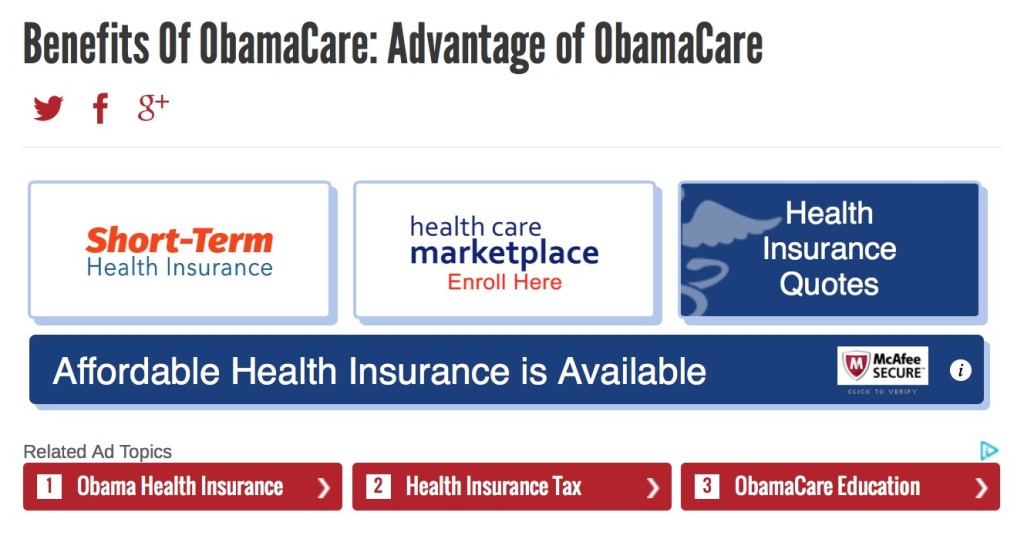
I’ve been waiting for someone with authority to come out and say this. Now Uber CEO Travis Kalanick has, and a New York Magazine reporter expands on the theme: universal healthcare in America is a problem for capitalists (represented by the GOP), because it both frees workers from staying at a job just for the health benefits and it knocks down a barrier to entrepreneurship. Capitalism always need an underclass to exploit but quality universal healthcare will make it harder to exploit workers. The worker that can easily leave a job for better conditions, opportunity or pay is a worker who has negotiating strength and may even have enough money to compete with his boss.
Kalanick told reporters that Obamacare had been a crucial element in his firm’s success. “It’s huge,” he said, according to BuzzFeed. “The democratization of those types of benefits allow people to have more flexible ways to make a living. They don’t have to be working for The Man.”
The destructive power of this blunt statement works in two ways. The first, of course, is that it rebuts the Republican indictment of Obamacare, opposition to which is a matter of holy writ within the party. Of all the grounds for Republican hatred of Obamacare, the most deeply held is the belief that it amounts to onerous regulation that holds back capitalistic dynamism. That belief is not only foundational on the right, but nebulous enough that, even as conservative predictions about Obamacare’s cost and functionality obviously fail, the deeper suspicion that it is invisibly rotting away the foundations of capitalism can linger without any real evidence.
Women Entrepreneurs Rock event at legendary Stone Pony in Asbury Park on Mon 10/19
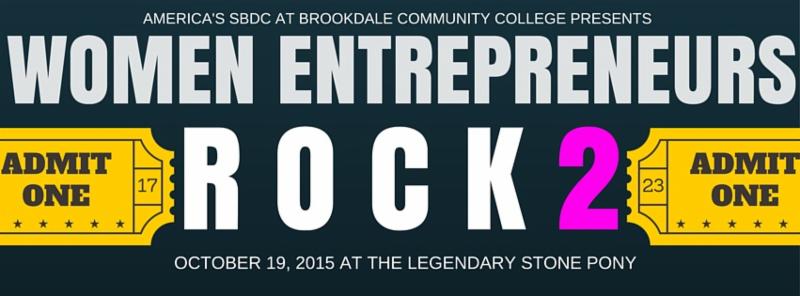 To facilitate a real dialog about topics important to women in business, the New Jersey Small Business Development Center at Brookdale Community College will hold its second annual “Women Entrepreneurs Rock” (aka WeRock) at a legendary music venue in Asbury Park on Monday, October 19. The event is free and open to the public.
To facilitate a real dialog about topics important to women in business, the New Jersey Small Business Development Center at Brookdale Community College will hold its second annual “Women Entrepreneurs Rock” (aka WeRock) at a legendary music venue in Asbury Park on Monday, October 19. The event is free and open to the public.
19 October 19 2015
6-9pm (networking until 10)
The Stone Pony
913 Ocean Ave, Asbury Park, NJ 07712
A report in The State of Women Owned Businesses, 2014 from American Express OPEN says:
It is estimated that, as of 2014, there are nearly 9.1 million women-owned enterprises, employing nearly 7.9 million workers and generating over $1.4 trillion in revenues … Between 1997 and 2014, the number of women-owned firms grew at 1½ times the national average.
Jackeline Mejias-Fuertes, Director of the New Jersey SBDC at Brookdale Community College says, “This is by far, not your standard business function. From the topics, to the venue (one of the nation’s best known and loved music venues), to the speakers, our goal is to meet entrepreneurs where they live and offer current and candid insight – as we did in our inaugural 2014 event. No formalities and no canned responses … just real information from those who have successfully navigated the process of launching and growing a business.”
Panelists will discuss their backgrounds, successes and the challenges they’ve overcome and offer advice to fellow business owners, followed by a Q & A session.
Keynote is Kellie LaDet, Regional Administrator for the US Small Business Administration (SBA). Panel moderator, DonnaLyn Giegerich, President of DLG Consulting. Panelists include:
Holly Migliaccio – Co-Founder/Owner Rook Coffee
Marilyn Schlossbach – Restaurateur and International Hospitality Consultant
Julie Goldman – Founder & CEO The Original Runner Co
Stephanie D. Burroughs – President of StephanieSpeaking LLC
Katherine O’Neill – Executive Director of Jumpstart New Jersey Angel Network
Space is limited at this free event so attendees must pre-register. There will be door prizes and a cash bar.
Visit womenentrepreneursrock.com for more information.
Learn how EMV chip card payment technology will affect your small business
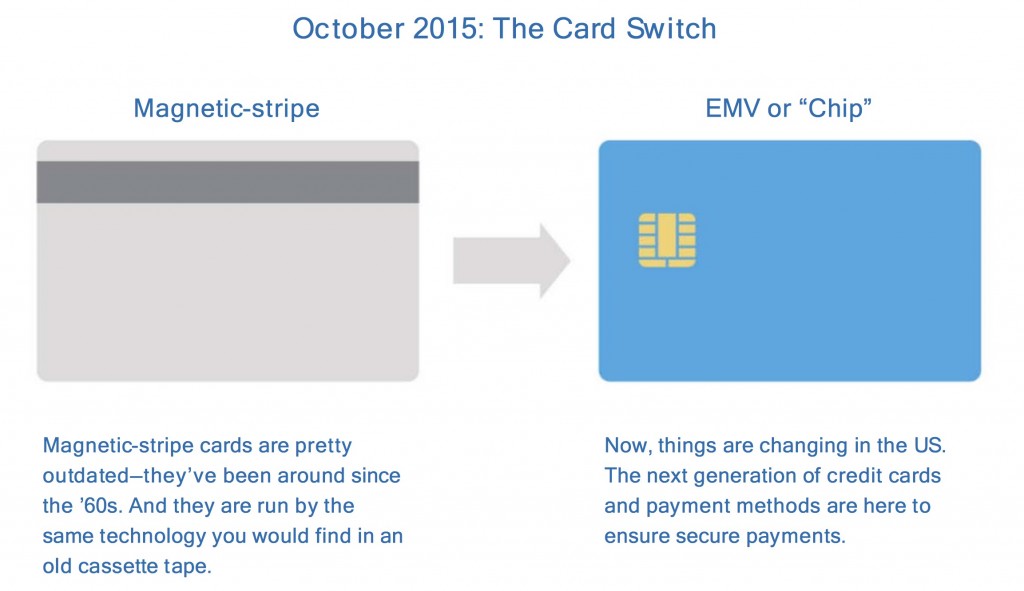 The SBA has resources to help small businesses with a payment technology revolution that’s coming soon – EMV chip card payments. Here’s what they say about it:
The SBA has resources to help small businesses with a payment technology revolution that’s coming soon – EMV chip card payments. Here’s what they say about it:
For merchants and financial institutions, the switch to EMV means adding new in-store technology and internal processing systems. To get chip-enabled for your business, contact your acquirer or payment services provider.
The switch to EMV also means a change in liability for credit card fraud. Today, if an in-store transaction is conducted using a counterfeit, stolen or otherwise compromised card, consumer losses from that transaction generally fall back on the payment processor or issuing bank, depending on the card’s terms and conditions.
Beginning on October 1, 2015, a deadline set major U.S. credit card issuers including MasterCard, Visa, Discover and American Express, the liability for card-present fraud will shift to whichever party is the least EMV-compliant in certain fraudulent transactions.
Thriving local economies means more health & resilience
 Walmart and Target say they help communities overcome health issues and the ill effects of poverty but the reverse is true.Institute for Local Self-Reliance’s Stacey Mitchell writes about the difference between communities with thriving local economies and those dominated by Big Box retail giants:
Walmart and Target say they help communities overcome health issues and the ill effects of poverty but the reverse is true.Institute for Local Self-Reliance’s Stacey Mitchell writes about the difference between communities with thriving local economies and those dominated by Big Box retail giants:
… study found that counties dominated by a few big firms have … less engaged citizens than those in which economic activity is dispersed across many locally owned businesses. “We find that residents of communities with highly concentrated economies (ed note: where big box stores predominate) tend to vote less and are less likely to keep up with local affairs, participate in associations, engage in reform efforts or participate in protest activities at the same levels as their counterparts in economically dispersed environments (ed note: where small businesses proliferate)…”.
Sociologists Stephan Goetz and Anil Rupasingha have linked this decline in civic participation to Walmart specifically. With each Walmart store that opens, social capital erodes, their research finds. Communities with more Walmart stores have lower voter turnout and fewer active nonprofit organizations. In their latest study, published in June, they’ve documented a correlation between Walmart and the presence of hate groups.
Still other research has linked the regional market share of large retail chains with higher rates of poverty, infant mortality, and crime.
Why is local ownership so nourishing to the social and civic fabric of communities? One (reason is) local business owners themselves. Their personal and financial interests are tied to the community’s well-being and, as a result, they are often active in various civic endeavors. While small business owners gain prestige and influence by contributing to community improvement, corporate managers garner status by advancing the company’s interest, even at the expense of the community.
Another reason is that cities with a strong entrepreneurial culture and local control of economic resources have more capacity to solve problems on their own and are more resilient and adaptable in times of distress. Those that are dependent on outside corporations have little ability to marshal resources to overcome challenges.

